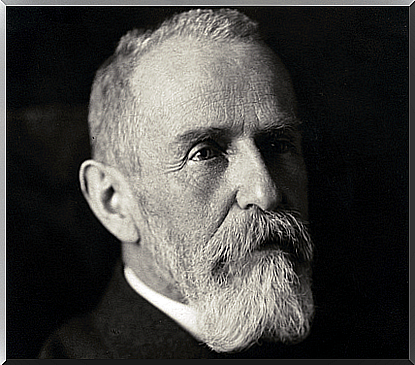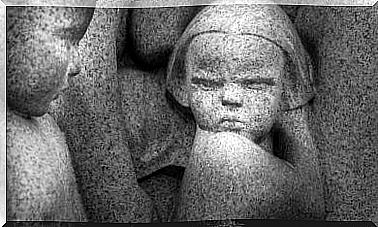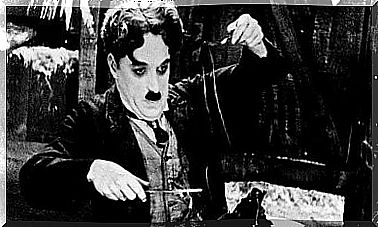Eugen Bleuler: A Pioneer In Schizophrenia Research

Eugen Bleuler was born in 1857 in Zurich and, throughout his professional career, he made numerous highly relevant contributions to the field of psychology. For this reason, and for others that we will see throughout this article, we consider it important to know the biography of this psychiatrist and some of his most outstanding works and research.
Although, before we begin, we cannot ignore the important influence that Freud had on Eugen Bleuler. All the work of the one who is considered the father of psychoanalysis captivated him to such an extent that he became his greatest reference. We will see, later, how this influence would affect him in his studies.

The beginnings of Eugen Bleuler
As the article Paul Eugen Bleuler indicates and the origin of the term schizophrenia , this psychiatrist began his studies in Medicine in his hometown, Zurich. After working as a psychiatrist, he moved to Paris, London, and later to Munich in order to continue the research he had begun in this field.
In Munich, he worked in a laboratory until, in 1885, he became an assistant physician at Burghölzli. The following year, he was appointed director of the Rheinau Psychiatric Hospital at just 29 years old. After this excellent start to his professional career, exactly 12 years later, he was appointed Senior Lecturer in Psychiatry at the University of Zurich.
The hysteria of Sigmund Freud
One of the things that interested Eugen Bleuler most about Freud’s studies was his articles on hysteria. For some reason, Bleuler had a special interest in hypnotism and introspection, which caused him to soak up all the knowledge and advances that Freud had made.
However, despite the fixation that Eugen Bleuler may seem to have had with Freud, he was always very cautious. As the article we have mentioned clearly indicates, Paul Eugen Bleuler and the origin of the term schizophrenia , felt upset with some of the concepts that Freud dealt with, such as libido.
For this reason, despite the fact that he was a great reference for him and used the concepts of psychoanalysis to be able to respond to one of his great discoveries, it is essential to emphasize that, although he agreed with Freud, he also differed in many aspects.
The birth of the term schizophrenia
Following the article published by the American Journal of Psychiatry, Paul Eugen Bleuler and the birth of schizophrenia (1908) , we see that Eugen Bleuler coined the term schizophrenia for the first time in April 1908. This made it possible for him to have used certain concepts of the psychoanalysis of Sigmund Freud.
To do this, in addition, he echoed the concept of dementia and its forms that Kraepelin had previously coined. However, Eugen Bleuler realized that this term referred to a symptom of schizophrenia.
Given his in-depth research on the subject, he concluded that what happened to people was that they suffered a division in their thought process. For this reason, based on the Greek language, the name schizophrenia was born from “schizo” (division) and “frenia” (mind).
Subtypes of Schizophrenia
Once the term was coined, Eugen Bleuler did not stop researching about this disease and, based on the research that Kraepelin had already carried out on dementia, he concluded that there were different subtypes in schizophrenia.
The three subtypes were: paranoid, catatonic, and emotional or hebephrenic. All of them had already been collected by Kraepelin, but Eugen Bleuler did not follow all his theories. For the dementia that Kraepelin defined did not contemplate the fact that progressive deterioration did not always occur, nor did it appear early and, much less, that the subtypes were exclusive.
For all this, Eugen Bleuler carried out his own investigations to coin a new concept, more in line with the reality that he himself was able to analyze. Thus, today, we use it being clear about what it means thanks to all the work that this psychiatrist carried out.

Eugenic sterilization
Before concluding, it is convenient to highlight the concept of eugenic sterilization. A practice that consisted of sterilizing people who suffered from schizophrenia in order to prevent the disease from being inherited by their children.
At present, we know that schizophrenia is not a disease that can be considered hereditary, in fact, because someone in the family has had it, this does not mean that other members will suffer from it. However, in the time of Eugen Bleuler, studies on schizophrenia were scarce and they were only just in their first steps.
Despite this, Eugen Bleuler made it possible to investigate one of the diseases that today affects more than 21 million people, according to data from the World Health Organization (WHO). It also did a commendable job of which, although it still had many aspects to outline, it achieved important progress.









